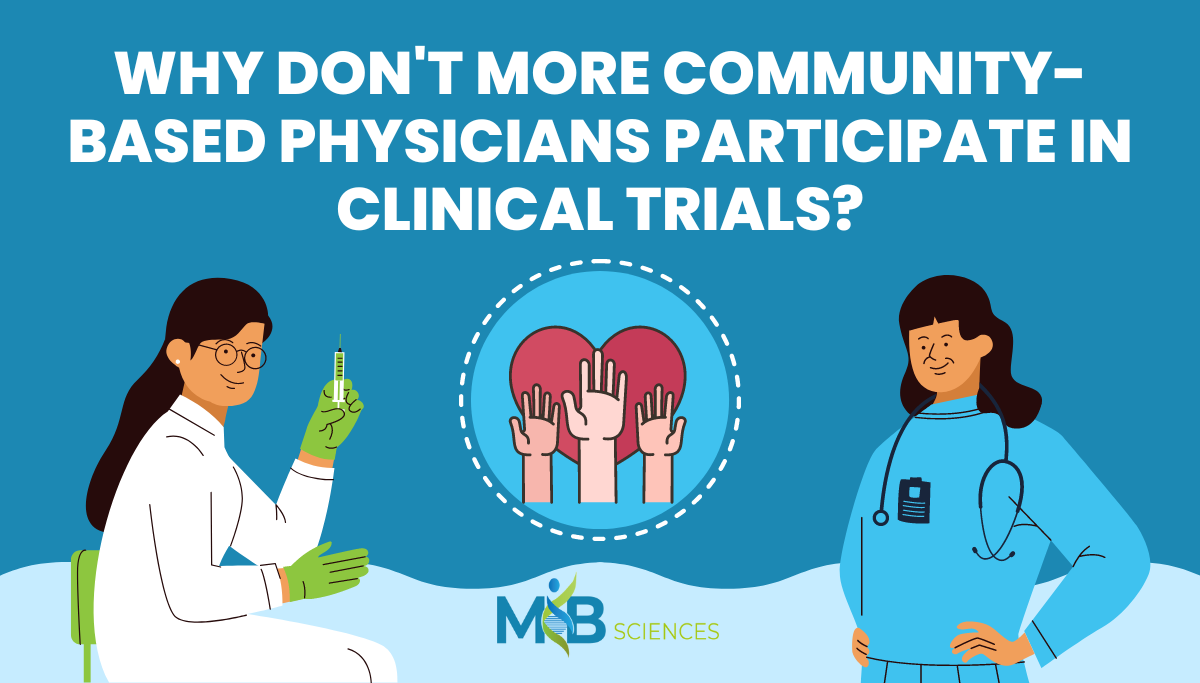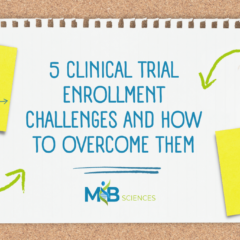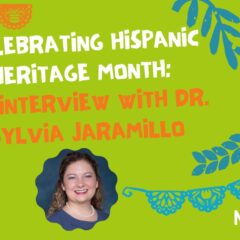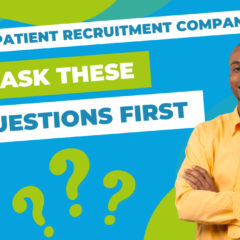Why Don’t More Community-Based Physicians Participate In Clinical Trials?
We often talk about the lack of diversity in clinical trials, but we don’t always talk about the role of community-based physicians as a key solution to this multifaceted problem. A 2021 cross-sectional study of all clinical trials published in major medical journals found approximately 90% of all US trial participants were white in 2019. Other groups, including Black, Native American and Asian populations, had much lower rates of participation.
This topic is worth exploring further.
How do community-based physicians contribute to clinical trial diversity?
One of the biggest reasons why patients don’t participate in clinical trials is simply that they are unaware of the opportunities. Scientific American points out that a misconception exists among patients of non-academically affiliated hospitals that clinical trials are only available through larger providers. While top cancer hospitals like the University of Texas MD Anderson Cancer Center or NYC’s Memorial Sloan Kettering Cancer Center facilitate enrollments in various clinical trials for their patients, community hospitals often lack the ties and connections to major institutions that host clinical trials. This leads to lower enrollment from non-academic or mainstream healthcare providers.
One solution to this is to create stronger relationships between clinical trial providers and community-based physicians. Physicians are often the best referral source for clinical trials — but that’s only true if they participate in them.
Why don’t community-based physicians participate in clinical trials?
The National Library of Medicine’s research shows that health maintenance organization-based physicians and minority physicians are more difficult to recruit for studies, often reasoning that time pressures on staff were too great.
Other barriers to entry include:
- Growing concerns over patient privacy
- Fiscal pressures of managed care
- Additional paperwork and administrative burden
- Lack of awareness of available trials
- Difficulty finding eligible patients and obtaining informed patient consent
Finding eligible patients and obtaining informed patient consent takes significant effort by physicians and their staff. A 2020 survey of Parkinson’s Disease patients in a deep brain stimulation trial asked about the experience of participating. Of the 27 patients surveyed, 63% reported some burden associated with participating in the trial; financial commitment — such as travel time and the ability to take time off work — was a significant factor.
For physicians who have patients in more rural or other small, non-metropolitan areas, finding more local trials is key to enrollment. Some research estimates 70% of potential trial participants live more than 2 hours away from a study center, with some oncology patients traveling over 25 Miles’s on average. Patients with a more advanced age, more medical comorbidities, or who are more susceptible to the financial burden of missing work or potential loss of employment, are less likely to participate in trials to which they need to travel. This would explain how travel can disproportionally affect patients of lower socioeconomic status.
Another significant issue boils down to a breakdown in communication. Often, physicians only see the extra responsibilities a clinical trial will add to their already full workload, including additional paperwork, taking time to recruit and enroll patients and gain informed consent, following up with patients throughout the study, and taking additional steps needed to protect patient privacy. When a study makes greater demands on physicians’ time and resources, that study will face tougher challenges in convincing those physicians to participate in patient recruitment.
How can we improve physician referrals in clinical trials?
Gaining more involvement in clinical trials from physicians who serve a broader cross-section of the population isn’t an insurmountable challenge. While the barriers are well-documented, the solutions don’t have to be revolutionary. They just require more creativity and a proactive approach.
Build personal relationships
Developing personal contact and relationship networks with physicians for patient recruitment, specifically HMO and physicians who serve underrepresented populations, has proven to be successful in improving participation. Sponsors should be mindful of the administrative burdens of clinical trials and delegate as much as they can to clinical research organizations or site coordinators, rather than asking physicians to take on the additional workload.
Rather than asking for more time from doctors, build processes into a study’s roll-out that gives them more time. For instance, sponsors can approach them directly and earlier in the patient recruitment and enrollment period. Taking a more active role in promoting the trial and gaining buy-in early can help community-based physicians see the benefits of participating.
Use innovative marketing strategies
The Center for Information and Study on Clinical Research Participation (CISCRP)’s bi-annual 2021 Perceptions & Insights Study encourages clinical trial sponsors to recruit physicians and patients directly online. The 2021 study shows a 15% rise in engagement via social media, whereas doctor referrals declined by 6% from 2019.
Younger generations respond to digital content more than traditional advertising. With millennials spending an average of 7.2 hours online each day, and 83% of millennials surveyed saying they find online content useful when making purchasing decisions, optimizing digital opportunities to promote clinical trials are a perfect way to reach new audiences.
Reduce travel needs
As technology adapts to patient needs, the ability to use virtual and at-home clinical trials gives participants more convenience and cuts down on the effects of the travel required by on-site clinical trials. For instance, patients can use wearable devices to monitor health data, such as heart rate, blood pressure, and blood sugar. They can also use smartphone apps to document their experience of participating in the trial or report adverse events, reducing the need for in-person visits. Incorporating telemedicine into clinical trials can also help, giving patients a way to interact with community-based physicians at their convenience.
What other ways can improve patient awareness of and participation in clinical trials?
The National Institutes of Health promote clinical trials as essential for moving new methods of preventing, diagnosing, and treating cancer from the laboratory to physicians’ offices and other clinical settings, which can improve care and quality of life.
Continuous outreach and communication are key. The CISCRP’s report shows more than 60% of the nearly 12,000 people surveyed indicated the importance of knowing that research staff conducting a clinical trial are representative of the diverse patient communities enrolled. The most recent publication stresses the need for year-round coordinated outreach efforts as a means to increase representation of diverse populations in clinical studies — not just advertising when a study needs participants.
How M&B Sciences can help
Improving diversity in clinical trials is a primary focus for M&B Sciences. We have established partnerships with hundreds of community organizations who have built trust among diverse populations, including faith-based organizations and community-based practitioners. Our expertise in spatial epidemiology, or data on the prevalence of diseases within specific demographics and geographic areas, also helps sponsors identify potential trial participants faster. Additionally, M&B Sciences Naive Investigator Training Program provides an onramp for community-based physicians to learn how to conduct clinical trials.
Our NeighborhoodTrials app helps patients find clinical trials near them, democratizing access to potentially life-saving healthcare information while helping sponsors reach their goals for diverse patient recruitment.
To learn more about how we can support your trial, request a consultation with us.



